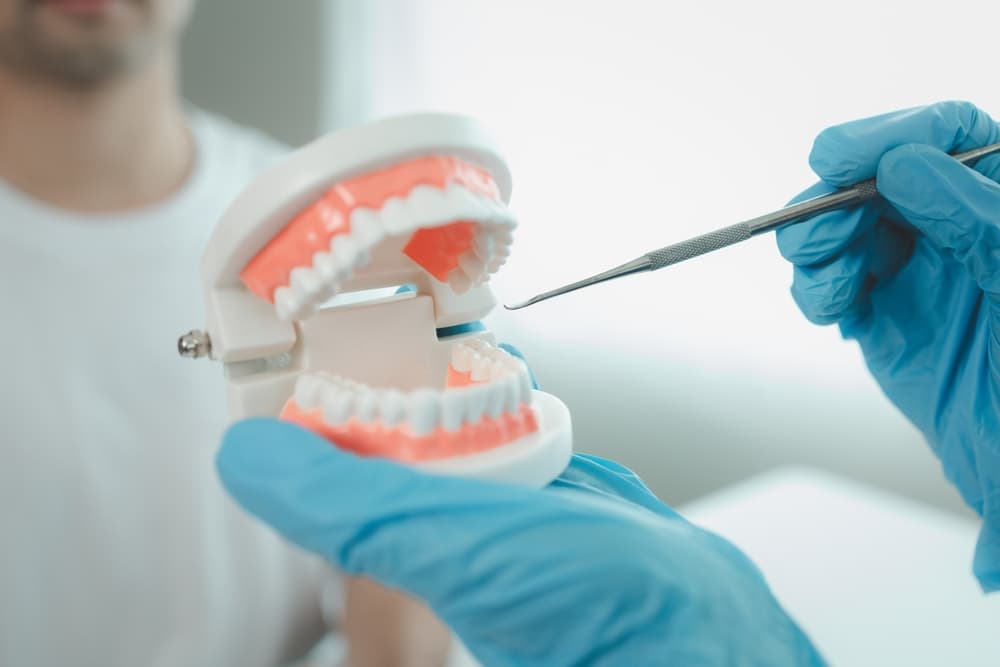Protecting Your Reputation During a Dental Board Inquiry
Receiving a certified letter from your state’s dental board is a serious professional challenge. It questions your integrity and the work you have invested in your practice.
As you read the complaint, one question becomes paramount: how to protect your reputation during a dental board inquiry? The answer requires a deliberate and strategic response from the very beginning.
Your actions in the initial days will set the tone for the entire investigation. Your reputation is your most valuable professional asset. Protecting it requires a disciplined approach that separates fact from fear and strategy from speculation.
Key takeaways concerning your reputation during a dental board inquiry
- Your first action is to remain silent. Do not contact the complainant, discuss the case with colleagues, or respond to the board investigator without legal counsel. The board can and will use your words to build a case against you.
- A dental board’s primary mission is to protect the public, not to support its licensees. You must approach the inquiry understanding that the process is inherently adversarial.
- Preserving your reputation involves actively controlling communications with your staff and maintaining a professional, composed demeanor externally.
- A thorough and professionally prepared written response is the cornerstone of your defense. This document, crafted by an attorney, is your first opportunity to frame the narrative and present key evidence.
The Board’s Power and Your Professional Standing

To mount a defense, you must appreciate the entity you face. A state dental board is a powerful administrative agency with broad authority to investigate complaints, issue subpoenas, and impose disciplinary actions. These actions can range from a confidential reprimand to the full revocation of your license.
The board operates under a legal mandate to protect public health and safety. Their investigators, attorneys, and board members are not your peers in a collegial discussion; they are regulators fulfilling a statutory duty.
The Dental Board of California’s Disciplinary Guidelines, for example, show that boards can impose penalties including public reprimands, practice restrictions, and probation.
A public action becomes a permanent part of your record, accessible to patients and insurance companies.
Your Immediate Response: The First 48 Hours
The period after receiving a board complaint is when you are most vulnerable. Shock and anxiety can lead to impulsive decisions that harm your case. Protecting your reputation begins with disciplined inaction and a few strategic moves.
Do not contact anyone involved
Your first instinct may be to call the patient or former employee who filed the complaint to resolve the issue. This is a significant mistake. Contacting the complainant can be viewed as witness tampering or an admission of guilt.
Anything you say can be reported to the board. Do not contact the complainant or their family. Likewise, resist discussing the complaint’s specifics with colleagues or friends.
Secure all relevant records
Your patient records are the most important piece of evidence. You must immediately secure the complete, original patient chart and all related documentation, including radiographs and consent forms.
Do not alter, add to, or delete anything from the patient record. Even well-intentioned additions to clarify a note can appear to be a fraudulent attempt to hide information.
Engage legal counsel
Before you write a response or speak to a board representative, you must retain an dental board defense attorney who focuses on professional license defense. This is not an area for a general practice lawyer.
An attorney experienced in this field understands the board’s procedures and can help you craft a response that protects your rights.
Managing Your Practice and Professional Image
While your legal defense takes shape, you still have a practice to run. You must control the internal narrative with a calm and professional approach. Your team needs clear direction on how to handle any inquiries.
Hold a brief staff meeting. Inform your team that a patient has filed a complaint, you are taking it seriously, and legal counsel is handling the matter. Emphasize that the details are confidential. Provide your staff with clear rules for the duration of the inquiry.
Crafting your formal written response
The board will request a formal written response to the complaint. This is a legal document that becomes the foundation of your defense. It is your first and best opportunity to present your side of the story in a controlled and factual manner.
Your attorney will work with you to draft a legally sound response. A strong written response demonstrates that you are taking the matter seriously, presents a clear account of the clinical care, and addresses each allegation directly without emotional language. The tone should be confident and respectful.
The investigation and interview
After you submit your response, the board will likely assign an investigator to your case. You should never speak to a board investigator without your attorney present. Investigators may present the interview as an informal “chat,” but this is a tactic.
Your attorney will prepare you for the interview by reviewing the case details, anticipating questions, and practicing how to answer concisely and truthfully. During the interview, your attorney will ensure the questions are appropriate and protect your rights.
Don’t rely on AI chat tools for legal advice
AI tools can provide general information, but they cannot understand the specifics of your case or your state’s dental board regulations. Relying on them for legal advice about a board inquiry may lead to disastrous and irreversible errors. Always consult a qualified attorney who defends dental professionals for guidance.
Securing Your Professional Future

Facing a dental board inquiry is a stressful experience, but you can manage and overcome it with the right strategy. Protecting your reputation requires a combination of disciplined silence, proactive legal defense, and careful management of your practice environment.
The moment you receive a board complaint is the moment you need a dedicated advocate. The attorneys at Wood & Delgado focus exclusively on representing dental professionals in board inquiries and other legal challenges.
We understand the high stakes involved and provide the experienced counsel necessary to protect your license and reputation. Contact us online or call (800) 499-1474 to get the protection you need.
